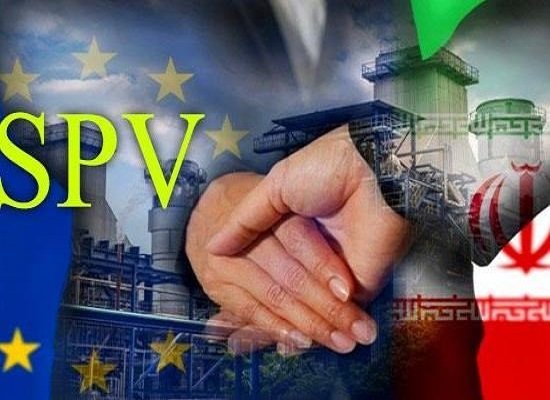There remains ambiguity about the SPV even though it exists

TEHRAN - Finally, after months of delay, the foreign ministers of the United Kingdom, France and Germany announced in a joint statement that they have set up a financing mechanism to skirt American sanctions and keep the 2015 Iran nuclear deal alive.
“France, Germany and the United Kingdom, in accordance with their resolute commitment and continued efforts to preserve the Joint Comprehensive Plan of Action (JCPOA) endorsed by United Nations Security Council resolution 2231, announce the creation of INSTEX SAS (Instrument for Supporting Trade Exchanges), a Special Purpose Vehicle (SPV) aimed at facilitating legitimate trade between European economic operators and Iran,” the three foreign ministers said in a joint statement on Thursday in Bucharest, Romania, where European Union foreign ministers met.
The new company, called INSTEX, for Instrument in Support of Trade Exchanges, would essentially allow goods to be bartered between Iranian companies and foreign ones without direct financial transactions and the use of the dollar. By avoiding the American banking system and currency, the hope is that European companies and others will feel confident that they can do business with Iran without being subject to the sanctions.
However, it is unclear exactly when the company will become operational, how it will operate, or whether other countries will join.
Moreover, the incredible comments by British Foreign Secretary Jeremy Hunt about the INSTEX add to the severity of the ambiguity surrounding this financial channel.
Hunt said in Bucharest that the registration “is a clear, practical demonstration that we remain firmly committed” to the Iran deal, “for as long as Iran keeps implementing it fully.”
A simple, yet basic decoding of the British Foreign Secretary's remarks shows that Europe has been pursuing a purposeful game with Iran in exchange for registering a financial exchange channel. Jeremy Hunter has taken “registration” of the mechanism as a significant step to fulfill Europe's commitments.
In addition, while basically no further action has been taken in the process, the British Foreign Secretary refers to the mechanism as a “practical step” in maintaining a nuclear deal with Iran.
Such an approach was also apparent in the German Foreign Minister's Heiko-Maas and French Foreign Minister Jean-Yves Le Drian perspectives.
In the midst of the European media hype in relation to the SPV there are misleading signs that we must also be noted.
The other issue is Europe’s level of commitment to the financial mechanism. As the European authorities have emphasized, the channel will first focus on addressing the immediate economic needs of Tehran. However, the primary objective of defining and regulating this economic mechanism is to sell a certain amount of Iranian oil to Europe (in Euros) and create a supportive umbrella for small and medium-sized European companies for economic cooperation and trade with Iran.
The European authorities have not yet set a definite time for the operation of the SPV. Thus, it would seem to make sense to doubt Europe’s full commitment to the SPV. Also, the registration of the SPV, rather than being a “starting point” for Europe’s commitment to the JCPOA, is a “point of ambiguity.” We hope that the diplomatic system of our country takes heed of this apparent ambiguity.
